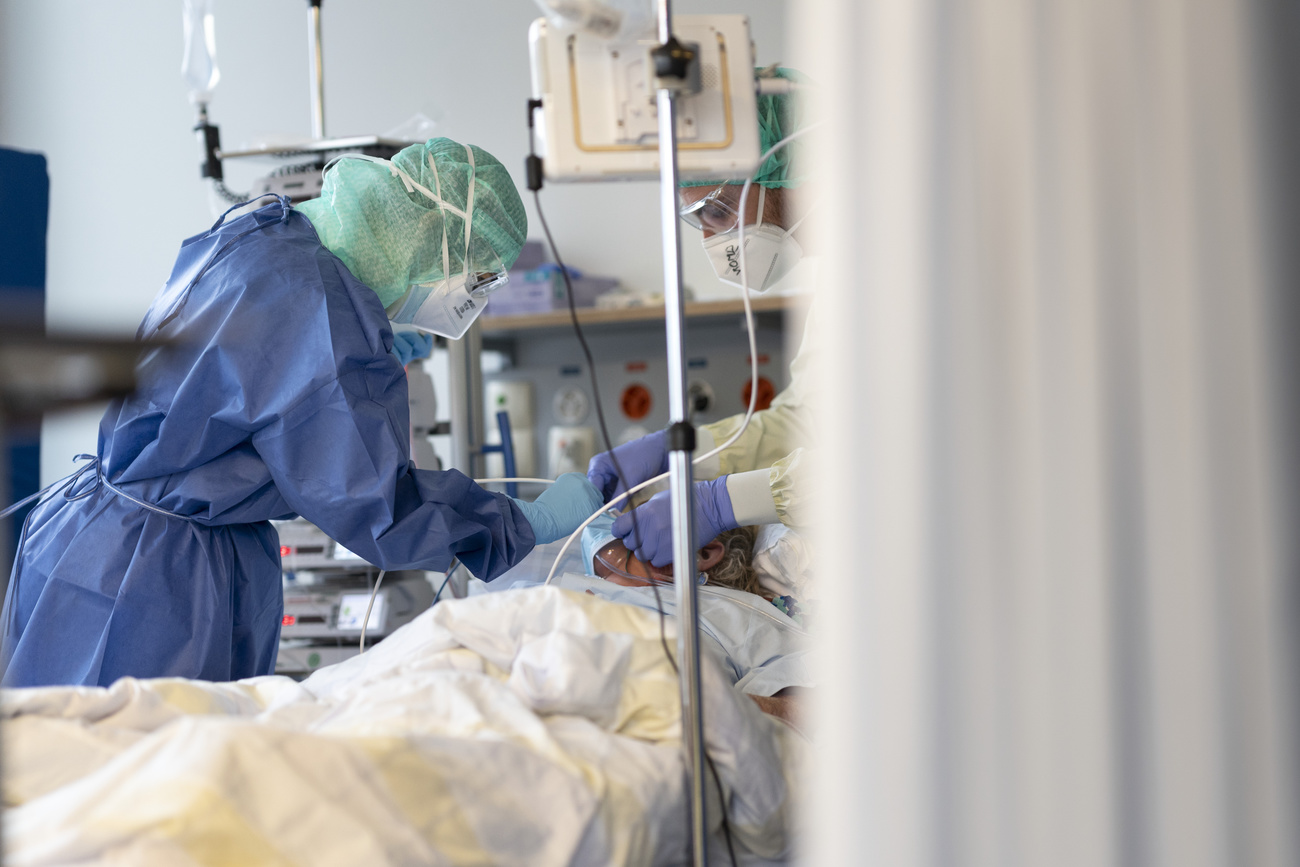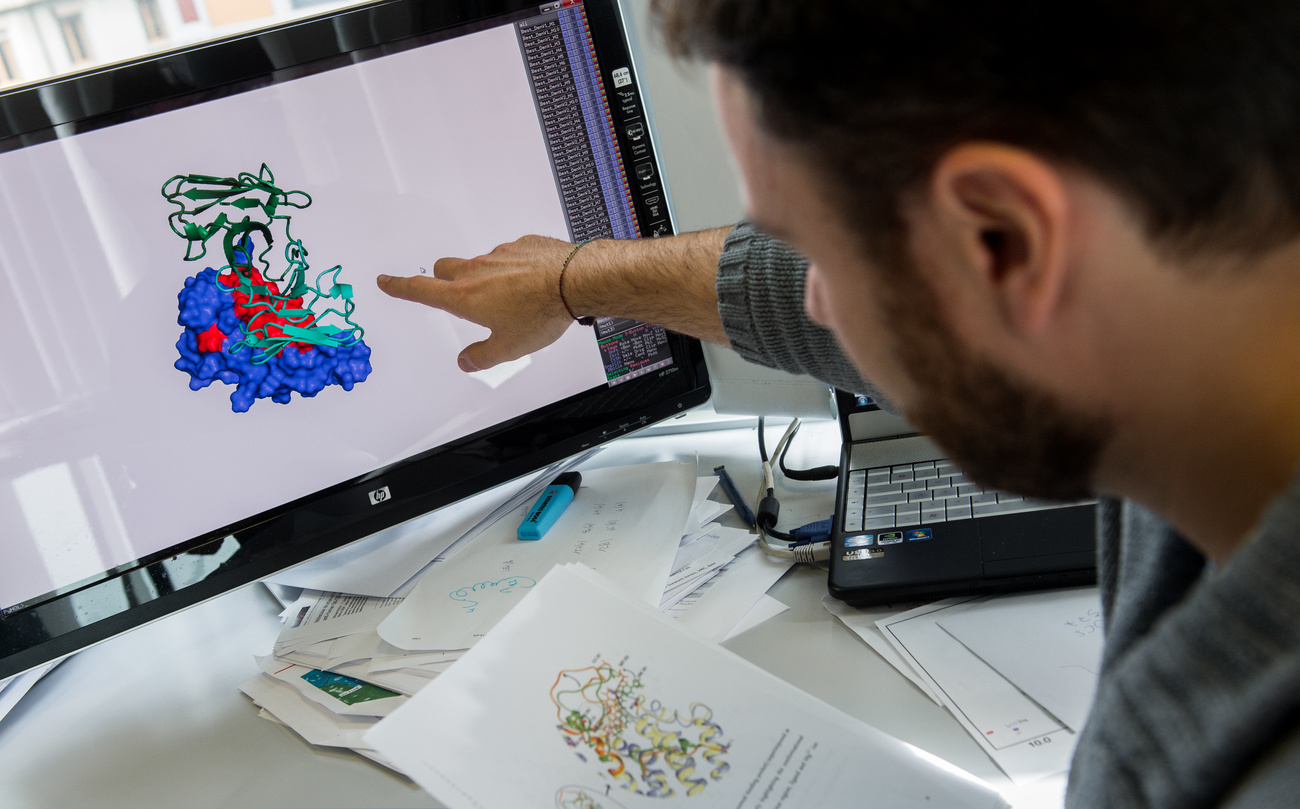Study: some patients suffer persistent lung damage after Covid-19

Severe Covid-19 can result in prolonged impairment of oxygen in the lungs even four months after infection, a nationwide Swiss study has found.
“Long-term monitoring and treatment of these patients is urgent and important,” it concluded.
The research, which has been published in the European Respiratory JournalExternal link, was conducted as part of the Swiss national Covid-19 lung study by the Bern University Hospital in collaboration with the University of Bern.
A statement released by the hospitalExternal link said that since the summer of 2020 various studies around the world had reported symptoms and side effects of what is known as long-Covid. The observational Swiss study aims to document the medium and long-term trajectory of the disease with focus on the lungs.
“The study provides important baseline data for the clinical care of long-term Covid-19 patients worldwide,” the statement said.
Reduction of oxygen uptake
Using data from nine Swiss hospitals, researchers looked at 113 cases of Covid-19, of which 66 had had it severely and 47 had had a mild to critical course. It found that while the second group was almost completely well after several months, the first group were struggling.
“Even four months after the infection severe Covid-19 causes a one fifth reduction in oxygen uptake capacity compared to a healthy person,” the statement said.
“It is important that the suffering of these people is taken seriously even after they have recovered from the infection,” pneumologist Manuela Funke-ChambourExternal link, who initiated the study, told the Swiss news agency Keystone SDA-ATS.
Most of the more strongly affected patients belonged to one of the Covid-19 risk groups: older people, the overweight or people suffering from high blood pressure.
“This emphasizes the important of prompting prevention among these groups, for example by vaccinating,” she added. There had however also been severe cases needing longer treatment among non-risk patients, the researcher explained.
At present, it is not known whether the lung damage is permanent, and researchers will continue to follow the progress of patients with persistent symptoms or pulmonary lesions over the coming year.
Long-Covid
In December doctors and epidemiologists in Geneva showed that some symptoms of Covid-19 could last more than six weeksExternal link, even in patients without underlying risk factors.
The study, conducted by the University of Geneva and the University Hospitals of Geneva, followed nearly 700 people who had tested positive for Covid-19 but who had not needed to go to hospital. Six weeks after diagnosis, 33% of then reported that they still suffered from fatigue, loss of smell or taste, shortness of breath or a cough.
The results of this study were published in the Annals of Internal MedicineExternal link.

In compliance with the JTI standards
More: SWI swissinfo.ch certified by the Journalism Trust Initiative






















You can find an overview of ongoing debates with our journalists here . Please join us!
If you want to start a conversation about a topic raised in this article or want to report factual errors, email us at english@swissinfo.ch.